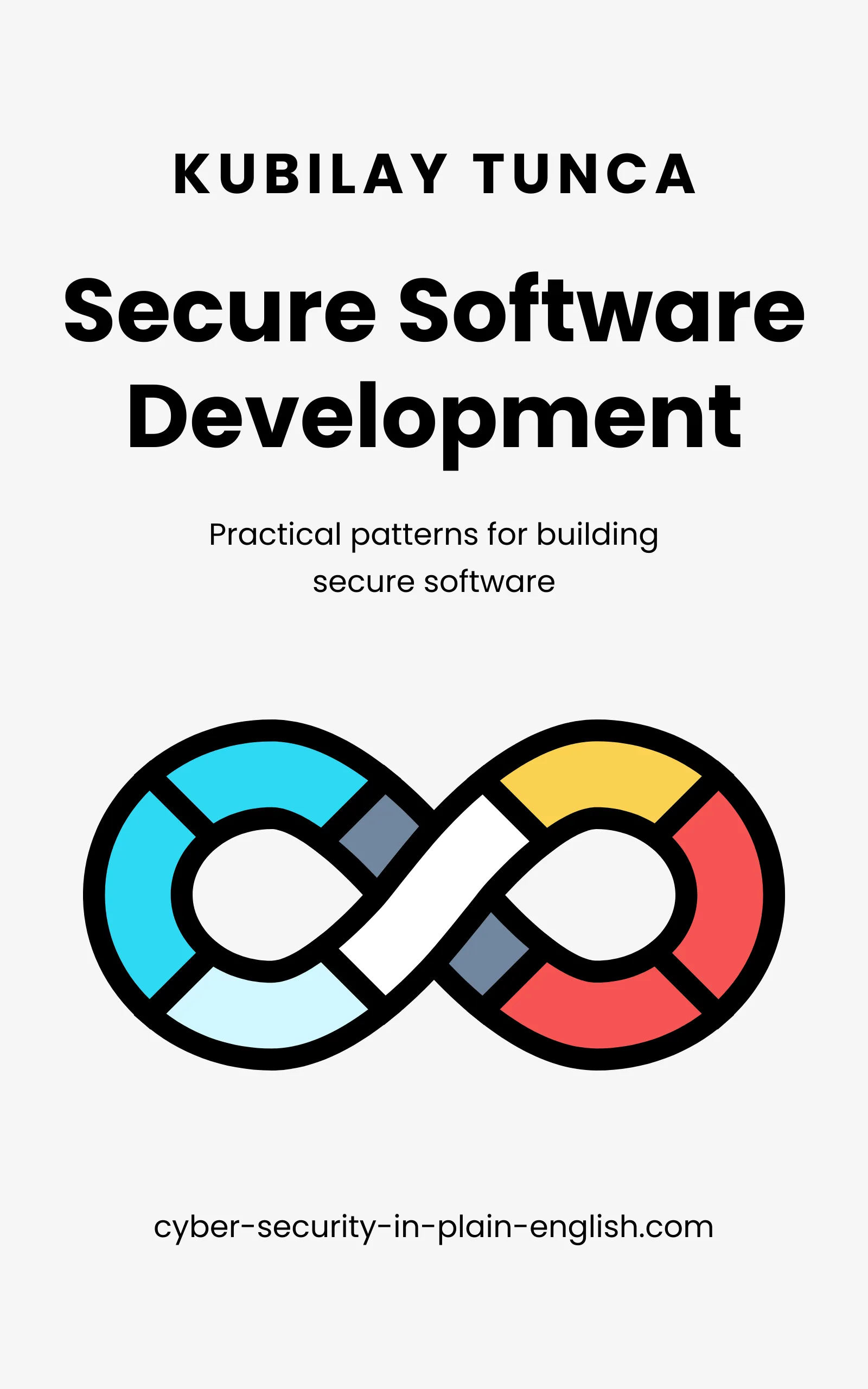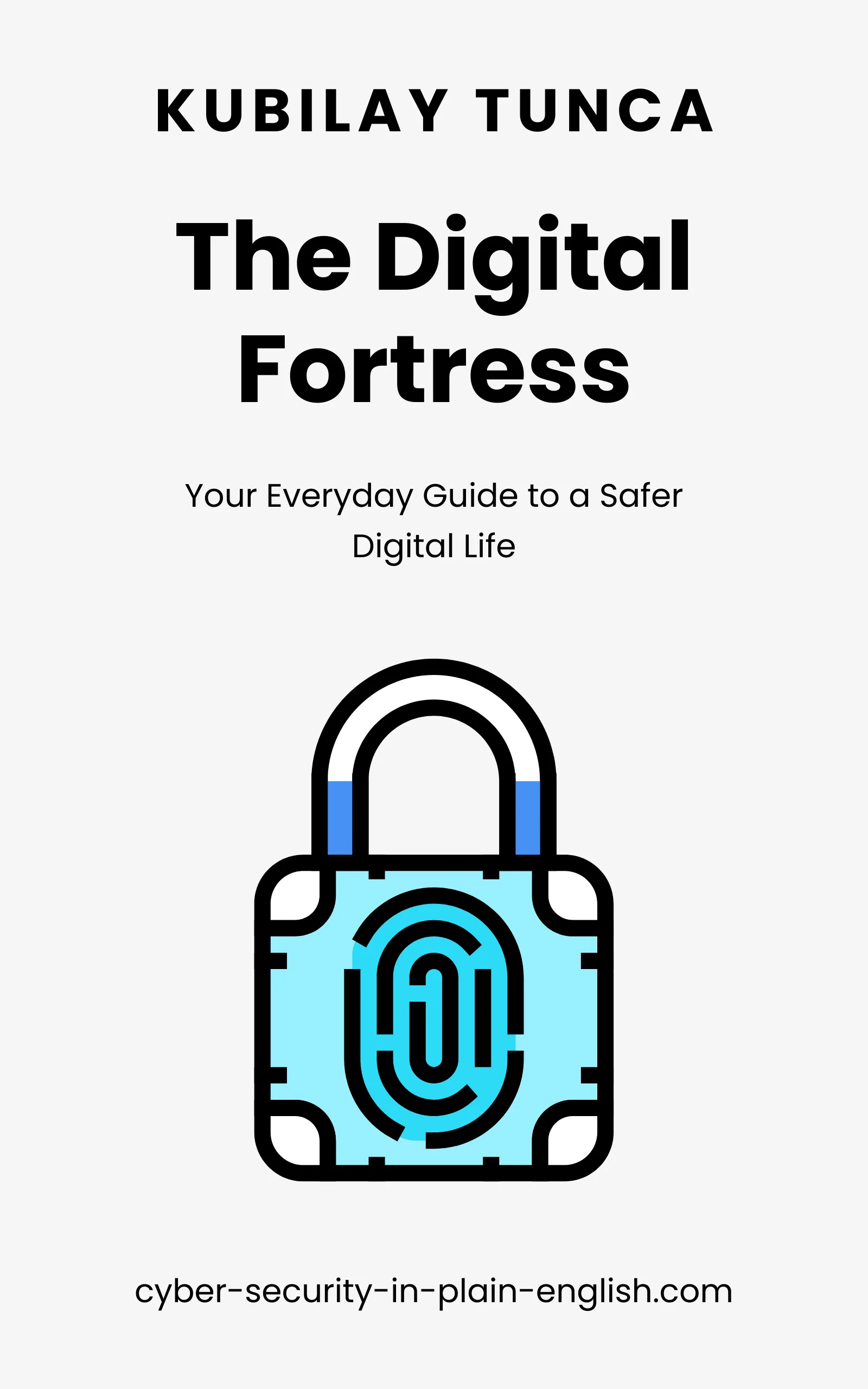Published
- 13 min read
Advanced Tools for Maintaining Online Anonymity in 2024

How to Write, Ship, and Maintain Code Without Shipping Vulnerabilities
A hands-on security guide for developers and IT professionals who ship real software. Build, deploy, and maintain secure systems without slowing down or drowning in theory.
Buy the book now
Practical Digital Survival for Whistleblowers, Journalists, and Activists
A practical guide to digital anonymity for people who can’t afford to be identified. Designed for whistleblowers, journalists, and activists operating under real-world risk.
Buy the book now
The Digital Fortress: How to Stay Safe Online
A simple, no-jargon guide to protecting your digital life from everyday threats. Learn how to secure your accounts, devices, and privacy with practical steps anyone can follow.
Buy the book nowAdvanced Tools for Maintaining Online Anonymity in 2024
Introduction
In an era where every click, search, and online purchase can be recorded, achieving a sense of true anonymity online feels increasingly elusive. For many people, online privacy isn’t just about avoiding unwanted advertisements—it’s about controlling who sees your information, what can be done with it, and how your digital actions shape the picture of you that’s stored in countless servers across the globe.
In 2024, standard measures like using a browser’s incognito mode or clearing your cookies from time to time aren’t enough. These basic steps might hide your activity from someone who uses your computer after you, but they do little to prevent large companies, data brokers, advertisers, and even cybercriminals from collecting and analyzing your online behavior. To maintain meaningful anonymity, you need more advanced tools—technologies, techniques, and habits that transcend the basics and truly guard your digital identity.
This article explores advanced tools and strategies that can help you stay anonymous online. From privacy-focused browsers and fully encrypted messaging apps to decentralized storage networks and specialized operating systems, these solutions can help you take back control of your digital footprint. Whether you’re a journalist protecting your sources, a whistleblower needing to share information safely, or an everyday user who believes in the right to online privacy, these advanced tools can become powerful allies in 2024.
Why Advanced Anonymity Tools Are Important
The internet was not originally designed with anonymity in mind. As it evolved, countless systems emerged to track user behavior for commercial, security, or analytical purposes. Advertisers want detailed profiles of your interests and habits; companies want to know how often you visit their websites and what products you click on; and governments in certain regions may wish to monitor what you read and share. Basic measures like using incognito mode or deleting your browsing history only scratch the surface. They might prevent casual observers from seeing your tracks, but they don’t stop the deep-level data gathering and profiling that’s happening behind the scenes.
Advanced anonymity tools are important because they offer a more substantial shield against these pervasive tactics:
- Protection from Data Collection: Robust privacy measures help ensure that big data collectors and advertisers can’t easily follow your online trail. This means fewer personalized ads, less invasive recommendations, and a reduced risk that your data will be bundled and sold to third parties.
- Secure Communication Channels: For people who handle sensitive information—such as researchers, activists, or professionals discussing proprietary business data—relying on default communication tools can be risky. Advanced solutions offer end-to-end encryption, multi-hop routing of communications, and other safeguards that keep conversations safe from prying eyes.
- Access to Restricted Content Without Exposure: While some use anonymity tools to bypass censorship or geo-blocking, others rely on these measures to simply stay private while accessing public information. Advanced anonymity tools ensure that while you enjoy the open exchange of information, you don’t pay the price by revealing your identity or preferences to unknown entities.
In essence, advanced anonymity tools matter because privacy itself matters. They help restore some of the balance between personal freedom and pervasive surveillance that has become the norm in today’s digital age.
Top Advanced Tools for Online Anonymity in 2024
1. Tor Browser and the Tor Network
The Tor Browser isn’t just another privacy tool—it’s the gold standard for individuals who truly value anonymity. Tor stands for “The Onion Router,” a name that reflects how it wraps your data in multiple layers of encryption. When you use Tor, your internet traffic is routed through a series of volunteer-operated servers called “relays.” Each relay peels back one layer of encryption, knowing only the server that came before it and the server that follows. This approach makes it extremely difficult for anyone to trace your activities back to your real IP address.
Why It’s Effective: Tor’s multi-layered encryption and routing ensure that no single point in the network knows both who you are and what you are accessing. Even if someone intercepts your traffic at one stage, they see only encrypted information traveling between relays. This makes Tor a particularly valuable tool for journalists contacting anonymous sources, activists operating under restrictive regimes, or individuals who simply prefer that their online interests remain private.
Practical Considerations: While Tor is powerful, it can also be slower than regular browsing due to the multi-step routing process. Some websites may block Tor traffic, considering it suspicious. Using Tor in combination with a VPN can help mask the fact that you are using Tor at all, which can be valuable in regions where Tor usage draws unwanted attention.
2. VPN with No-Logs Policy
A Virtual Private Network (VPN) takes your internet traffic and routes it through an encrypted tunnel to a VPN server before it goes out to the broader internet. This process masks your IP address, making it seem like you are browsing from the VPN server’s location rather than your own. To preserve anonymity, choosing a VPN provider that genuinely adheres to a no-logs policy is critical. A no-logs VPN promises not to store information about your connection times, the websites you visit, or the data you transfer.
Why It’s Effective: A well-chosen VPN not only makes it difficult for your Internet Service Provider (ISP) to see what you’re doing online but also helps prevent websites from pinpointing your real location. By ensuring the VPN provider does not keep logs, you’re adding a layer of protection against potential legal requests, hacks, or data breaches that could otherwise expose your information.
Practical Considerations: Before selecting a VPN, review its privacy policy, independent audit results, and the jurisdictions under which it operates. Privacy-focused VPNs like ExpressVPN, NordVPN, and ProtonVPN have strong reputations for protecting user anonymity. Features such as multi-hop connections (routing traffic through multiple VPN servers) and split tunneling (choosing which apps use the VPN) can further customize your anonymity level.
3. Privacy-Focused Operating Systems
Operating systems like Tails and Qubes OS go beyond the browser to address anonymity at the system level. Tails runs entirely from a USB stick or a DVD. When you shut it down, it leaves no trace on the computer’s hard drive. By default, Tails routes all internet traffic through the Tor network, ensuring that everything you do online while using Tails is anonymized.
Qubes OS, on the other hand, takes a compartmentalization approach. It creates isolated “qubes” for different activities—personal emails, work documents, web browsing—each running in its own virtual machine. If one qube is compromised, the attacker can’t easily jump into another. This isolation drastically reduces the risk of cross-contamination and data leakage.
Why It’s Effective: Privacy-focused operating systems are built from the ground up to be secure and anonymous. They minimize data residues, meta-information, and other digital breadcrumbs that conventional operating systems often leave behind. For high-risk users—like journalists investigating sensitive topics, whistleblowers sharing confidential documents, or political activists operating under surveillance—these specialized OS solutions provide a solid, secure foundation.
Practical Considerations: There’s often a learning curve associated with using such systems, and they may not integrate with every piece of software you’re used to. However, if anonymity is a top priority, the trade-offs in convenience can be well worth it.
4. Encrypted Messaging Apps
While mainstream messaging apps have started to include end-to-end encryption, not all are created equal. Tools like Signal and Wire focus primarily on privacy and security, implementing end-to-end encryption by default. This ensures that only you and the intended recipient can read the messages—no one else, not even the app’s developers or your ISP, can decrypt them.
Why It’s Effective: In a world where personal chats, business negotiations, and critical information often take place online, encrypted messaging apps ensure that your conversations remain private. For individuals who need to share passwords, financial data, legal documents, or sensitive personal information, these apps provide peace of mind. With disappearing messages and verification features, they further limit the exposure of sensitive content over time.
Practical Considerations: Encrypted messaging apps generally require both parties to use the same app to benefit from strong encryption. Convincing friends, family, or colleagues to switch can be a hurdle. Nevertheless, as privacy awareness grows, more people are open to adopting these secure communication tools.
5. Decentralized Storage Solutions
Traditional cloud storage services concentrate your data on company-owned servers. Even if they promise encryption or strong security measures, a single hack or data request from authorities could expose your information. Decentralized storage solutions like Storj, Sia, or the InterPlanetary File System (IPFS) break files into encrypted fragments and distribute them across a global network of servers owned by different users. Only you have the keys to reassemble and decrypt the pieces.
Why It’s Effective: By removing the single point of failure and control, decentralized storage reduces the risk of mass surveillance, hacking, or unilateral data manipulation. No central authority can access or deny you your data without your permission. This approach aligns with the principles of the modern privacy movement: empowering individuals rather than corporations.
Practical Considerations: Decentralized storage may feel more complex to set up and use compared to familiar commercial cloud services. Also, speed and availability can vary depending on the network’s health. Still, for sensitive documents or archives, these solutions provide a strong layer of anonymity and resilience.
6. Multi-Layered Browsing Tools (VPN + Tor)
Some users combine tools to create layered anonymity. For example, they might connect to a VPN first, then launch the Tor Browser to access the web. This combination adds complexity for any potential adversary trying to track you. Your ISP sees only encrypted traffic to the VPN, not Tor usage. The websites you visit through Tor don’t see your real IP address or the VPN’s address—just the final Tor exit node. This makes it substantially harder for anyone to correlate your real identity with your online activity.
Why It’s Effective: By stacking these tools, you reduce the likelihood that a single compromised element could expose your identity. Even if someone manages to identify that you’re using Tor, they won’t know your real IP address because it’s obscured by the VPN. Conversely, if the VPN provider were ever compromised, the Tor layer still adds significant anonymity.
Practical Considerations: Each extra layer often adds complexity and can slow your internet connection. For routine tasks like streaming or casual browsing, this level of protection might feel burdensome. But for sensitive research, high-stakes communications, or activities in restrictive digital environments, the extra security is invaluable.
7. Privacy-Focused Search Engines
Mainstream search engines are data-collection giants. Google, for instance, uses your search history to serve personalized ads and tailor results. Privacy-focused search engines like DuckDuckGo and Startpage do not track user queries. They serve search results based on the keyword you type in without maintaining a history of your searches or connecting them to a personal profile.
Why It’s Effective: Without personalized profiling, your search activity remains a private matter. Privacy-focused search engines do not tie your searches to your IP address or device. This helps prevent long-term data accumulation that can be used to infer personal details about you.
Practical Considerations: While the privacy advantages are clear, you may sometimes find the search results less personalized or slightly less comprehensive for obscure queries. However, many users find that the trade-off is acceptable, especially if their top priority is reducing their digital footprint.
Additional Tips for Maintaining Anonymity
Advanced tools are powerful, but they’re only part of the equation. To maintain a high degree of anonymity, you should also adopt careful habits and practices that reinforce your overall privacy strategy.
-
Use Temporary Email Services: For online registrations, especially on sites you may not trust, consider using disposable email services like Mailinator or Guerrilla Mail. These let you sign up without revealing your permanent email address, preventing unwanted marketing campaigns or potential phishing attempts in the future.
-
Minimize Browser Fingerprinting: Even if you block cookies and use private browsing, sophisticated trackers can use “browser fingerprinting” to identify you based on your device’s configuration, installed fonts, screen resolution, and other unique characteristics. Browsers like Brave or extensions like Privacy Badger can help shield you from these techniques, making it harder for websites to identify you uniquely.
-
Regularly Clear Cookies and Cache: While this won’t stop determined trackers, deleting cookies and clearing your cache regularly can help disrupt simple tracking methods. Using private browsing windows or dedicated privacy-focused browsers for sensitive tasks also reduces the digital breadcrumbs left behind.
-
Consider Hardware Solutions: Some privacy-focused users go the extra mile by using hardware solutions. For instance, they might purchase a dedicated, low-cost laptop specifically for sensitive online activities, install a privacy-focused OS on it, and only connect using secure channels. By physically separating sensitive tasks from everyday computing, they greatly reduce the risk of mixing personal data with anonymous activity.
Common Misconceptions About Advanced Anonymity Tools
It’s easy to get confused about what these tools can and cannot do. Clarifying a few common misconceptions helps set realistic expectations.
-
“Using Incognito Mode Keeps Me Anonymous.” Incognito mode (or private browsing mode) mainly prevents your browser from recording your history and cookies locally. It does not hide your IP address from websites or stop third-party trackers. While it’s a useful feature to avoid leaving a trail on your own device, it’s not a comprehensive anonymity solution.
-
“VPNs Make You Completely Invisible.” A VPN hides your IP address, but it doesn’t erase your unique browser fingerprint or block every form of tracking. Some VPNs may also log your activity if they don’t have a strict no-logs policy. Think of a VPN as one part of a balanced privacy diet—effective when combined with other tools, but not a magic cloak of invisibility.
-
“Only Criminals Need Privacy Tools.” Privacy isn’t a luxury just for people who have something to hide; it’s a fundamental right. Protecting your anonymity can prevent identity theft, shield children from aggressive data collection, and ensure freedom of expression. Teachers, healthcare workers, business executives, and average citizens can all benefit from tools that keep their personal data private.
Conclusion
Achieving meaningful online anonymity in 2024 is not an impossible task, but it does require a thoughtful approach that goes beyond the basics. As surveillance technologies and data profiling become more sophisticated, taking steps to protect your digital identity becomes more important than ever.
By combining advanced tools—such as the Tor Browser, VPNs with strict no-logs policies, privacy-first operating systems, and decentralized storage solutions—with smart habits, you can significantly reduce the amount of personal information that’s harvested and analyzed as you navigate the digital world. Encrypted messaging apps ensure that your private communications stay private, and privacy-focused search engines prevent your search history from becoming a data goldmine.
While complete anonymity may be challenging to achieve and maintain, these tools and practices put the power back in your hands. You decide what to share, when to share it, and with whom. As the digital landscape continues to evolve, staying informed and proactive will help you adapt, ensuring that you can enjoy all the benefits of the internet without sacrificing the personal privacy and autonomy that you deserve.
In the end, the quest for online anonymity is as much about empowering yourself as it is about evading trackers. With the right setup, knowledge, and diligence, you can reclaim control over your digital footprint and navigate the online world with greater confidence and peace of mind.